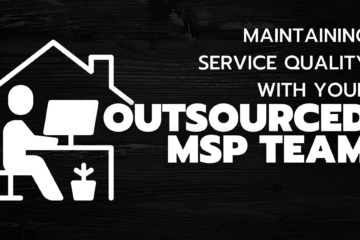Outsourced customer service is a very common term searched on the internet. Many fast-growing companies are looking to delegate support in order to focus on scaling their operations. But with the handover of responsibilities in your business comes potential for things to not work out quite how you anticipated them. So what could possibly go wrong?
Some risks of outsourcing customer service include:
- Lower Service Quality
- Security risks
- Hidden costs
- Loss of Control
- Loss of trust
- Difference in the communication and work culture
- Miscommunication and misunderstandings
- Lack of dedicated resources
- Lack of procedural structure
Don’t get us wrong. Outsourcing customer service is mostly advantageous for your business when done right. But knowing risks upfront will help you spot red flags in your search for the best provider. So let’s explore more about how outsourced customer service works and the perils to avoid.
What Is Outsourced Customer Service?
The idea behind outsourcing is delegating some parts of the business operations to another company.
Outsourcing doesn’t necessarily mean offshoring to faraway countries, as some mistakenly believe. You can hire a third party customer service provider even in the same city, and that constitutes an outsourced service.
Outsourcing sometimes gets a bad wrap because of the common practice of using call centers in third world countries, which can produce poor quality or a lack of compatibility with your company.
Here at Support Adventure, a remote MSP Staffing Company, we always stress the importance of identity and operational synchronicity between yourself and the outsourcer. Your company has to watch out for the following risks that can create a lack of cohesion between the two.
Loss of Control
This is a natural risk when you outsource part of your business to someone else–you relinquish some control over those operations. Monitoring performance and productivity can be also challenging. You might find yourself struggling to access external workers and to control the actual customer service process.
It can be scary trusting outsourcing solutions to have the same commitment to your customers as internal staff, which is why the company you work with should display how they prioritize this.
Outsourced staff members should also stay informed about your services and products to advise customers properly. But this can be hard to accomplish if your communication is disorganized and you work with a company whose customer service team supports multiple businesses besides your own.
Lower Service Quality
The second risk is that the quality of customer service may be compromised. This relates back to loss of control as you might not be able to govern the procedures the outsourcing staff is following.
Moreover, your understanding of good customer service can differ from the understanding of the provider. It may not align with your company’s core values and policies.
Something else to watch out for is the main intention of an outsourcer. The goal of some of these companies is to find more people like you who they can sell their services to instead of providing excellent customer service.
A difference in the communication and work culture
Another tricky aspect of outsourcing, that many businesses who tried it didn’t quite anticipate, is incongruity in communication style. This can appear harmless from the outside but can cause big problems to your business.
The risk is especially prevalent in international outsourcing to third world countries where staff are often trained to communicate in a subordinate manner. If your company prefers communicating more casually and conversationally, outsourcing companies like that may not mesh with your identity.
Work culture in many of these countries are vastly different to that of Western companies in that businesses are very hierarchic. Unfortunately staff must follow orders and rules.
Employees aren’t always treated like individuals within the organization and they are conditioned to speak accordingly. Whereas in the USA for example, staff are encouraged to be more impactful and contribute their ideas, making them feel like equals. This is why the culture of your company and that of the outsourcer shouldn’t be looked over.
Also, don’t forget about language nuances. There can be critical cultural or language-related differences between your team and the outsourcing team. A service in a different country can provide English speakers, but maybe it’s different from the American version or the British version or whichever other version works best for you.
Communication is everything in customer support. We always say that when it comes to hiring outsourced talent, we only consider people we could have a chat with over a beer. That’s the level of seamless communication we strive to provide our clients, and you should strive to provide yours.
Loss of trust
Some outsourcers can handle events completely differently to how you would handle it, creating a lack of trust for leaving things in their hands.
If a third party provider performs some breach or mishandles a customer, you can find yourself paranoid and hyper vigilantly anticipating the next mistake. So it’s important that you know up front what the outsourcer has in mind for:
- SOPs
- Security protocols
- Escalation
- Urgent incidents
Security risks
Nowadays, security risks are everywhere. When working with an outsourcing firm, it’s unavoidable that you must provide some of your sensitive data, including:
- Credit card numbers
- Customer data
- Licenses
- Login credentials and passwords
- Keys
…and so much more. The transferring of data is also vulnerable to being accessed by hackers, hence there is a big security risk when delegating customer service to a third party agency.
Companies must properly screen providers and employees to ensure all information is utilized appropriately and that agents don’t use sensitive data for their benefit. Performing background checks and reference checks is a good way to feel more at peace with who you delegate outsourced work to.
Some outsourcing companies might also lack robust security systems and be at a higher risk for experiencing some data breach or other cyber attacks. So you must make sure upfront that their security protocols align with yours. It’s okay if security is a dealbreaker for you in working with some companies and it’s okay to enforce your security policy on them.
Lack of quality control
This risk relates to the previously mentioned lack of control and decline in quality. Only your company knows all ins and outs of the products or services you provide and how to assist your clients in the best possible way. So it’s really up to you to make sure that you choose an outsourcer who wants to follow through in this way and that you show them the ropes as much as possible.
If you hire an outsourcer whose focus is only on quantity or growth, quality won’t be a top priority. But you also hold the cards to detail and enforce the practices you need them to fulfill in order to provide the best service.
Miscommunication
When hiring a customer service provider in another country, it is easy for misunderstandings to occur or for something to be misinterpreted.
If you’re managing outsourced staff through meetings on Zoom, email, or by phone, there can be regular miscommunication due to the lack of face-to-face quality time to clear up gray areas. To avoid this, you must implement policies with an outsourced service provider to establish maximum clear communication.
Hidden costs
One of the benefits of outsourced customer service is financial savings. But what if there is a hidden cost somewhere?
Some companies simply overpay for outsourcing services because the pricing structure might not be very clear.
Watch out for these hidden costs when outsourcing customer service:
- Transition and relationship building fees
- Productivity lag fee
- Improving internal processes fee
- Management and coordination of the outsourcing relationship fee
Avoiding unexpected costs starts with carefully selecting and evaluating the partner company. Read the contract through and through to prevent this from happening to you.
Lack of dedicated resources
Outsourcing providers might lack dedicated resources, leading to your clients receiving inconsistent service every time they call the service desk. This is absolutely frustrating for them.
If inconsistency is a big deal breaker for you, then it’s best you only pursue outsourcing partners who can provide you with agents who work for you and only you. They can develop personal relationships with your clients, and you can provide an excellent level of service based on familiarity.
Lack of procedural structure
The final risk is that outsourced customer service providers can often lack a procedural structure that synchronizes with your internal one.
Keep in mind that having someone remotely working in another country will require you to have a much more streamlined and defined workflow.
Need help outsourcing your help desk?
If you’re an IT company, a surefire way to avoid these risks is to work with us! We’ve consulted and provided outsourced staff for dozens of MSPs. All of these risks are not only addressed by us, but we’ve also developed industry best practices to avoid them all together. So feel free to check out more about our MSP services here.



0 Comments